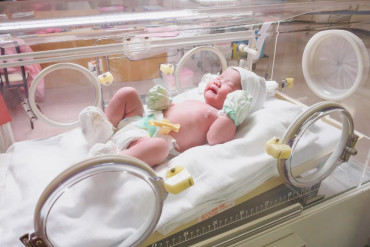Did My Midwife Cause My Child’s Injury?

Midwives are medical providers who have training in obstetrics. Most midwives work in hospitals or alongside OB/GYNs in doctor’s offices. They provide care for women during pregnancy, childbirth, and postpartum.
There are two types of midwives, direct-entry and certified nurse midwives. Certified nurse midwives are registered nurses who have taken midwifery training and become certified. On the other hand, direct-entry midwives learned midwifery through apprenticeships or training that didn’t include nursing. Some states, like Pennsylvania, do not allow direct-entry midwives to practice. Only certified midwives can do so.
What Are The Most Common Midwife Malpractice Injuries?
Midwife malpractice injuries are similar to injuries caused by doctors or other medical professionals. Mistakes or negligence can occur during pregnancy, childbirth, or after a baby is born. Some of the most common birth injuries caused by midwives include:
- Brain injuries caused by lack of oxygen
- Traumatic injuries like broken bones
- Shoulder dystocia
- Infections
- Infant resuscitation issues
- Cerebral palsy
Generally speaking, most injuries to mothers and newborns caused by midwives fall into one of the following categories:
- Failure to monitor mother and baby – Proper monitoring during pregnancy and childbirth is critical to understand whether the mother or baby is in distress. Diagnostic testing, like ultrasonography, shows a baby’s development, movement, position, and body structure. Such tests help determine a baby’s health in utero. However, much of the monitoring before birth is done through the mother. If there are problems with the mother’s vital signs, oxygenation, nutrition, or other indicators, it can impact the baby. One of the biggest concerns is oxygenation. If the mother isn’t getting enough oxygen, neither is the baby. Even short periods of insufficient oxygen can result in brain damage. It may be considered malpractice if the mother or baby shows signs of distress and the midwife doesn’t respond promptly and properly.
- Failure to refer to a physician – Midwives cannot perform C-sections or, in some cases, use delivery instruments like forceps and vacuums. If a midwife doesn’t refer a patient to a doctor at the first sign of an emergency, and things spiral out of control, they may be held liable for any injuries that result.
- Failure to follow infection protocols – Babies are more susceptible to infection injuries in the womb and after birth. Therefore, it’s critical that medical professionals, including midwives, follow infection and sterilization protocols to avoid introducing infection to the mother and baby.
- Improper or too much force – Complications during childbirth can make delivery challenging. In some cases, midwives who are committed to performing natural births may continue to try delivering a baby manually, even when it isn’t safe to do so. Using too much or inappropriate force when delivering the baby can result in traumatic injuries like shoulder dystocia or broken bones. Complications that delay delivery or cause problems during delivery may be caused by:
- Breech position of the baby
- Uterine rupture
- Placenta previa
- Umbilical cord problems
- Cephalopelvic disproportion – the baby’s head is too big to fit through the birth canal
- Macrosomia – the baby is too large to be delivered naturally
When Is It Midwife Malpractice?
In Pennsylvania, midwives must be licensed and certified to practice. As licensed medical professionals, midwives can be sued for medical malpractice if they make mistakes or are negligent in their care. However, proving that negligence occurred during midwife care can be challenging. Your attorney will have to prove that the midwife had a duty of care to provide, that they didn’t meet the accepted standard of care, and that their negligence caused injuries and damages.
Consult An Experienced Birth Injury Lawyer in Pennsylvania
Even though childbirth is a natural process, complications can arise. Sometimes these complications are unpreventable – they just happen, and no one is to blame. There are other times when complications occur because a midwife acted or didn’t act in the proper way.
If a midwife assisted you during pregnancy, labor, or delivery and you or your baby suffered injuries, it may be a case of midwife malpractice. An experienced birth injury lawyer will review your claim and determine if you have a case to pursue.
At Ross Feller Casey, we have a team of attorneys and medical doctors who have helped many families with their birth injury claims, winning large settlements and verdicts that help ease the financial burdens the injuries caused. Contact our law office today to set up your free consultation. Our midwife malpractice cases are handled on a contingency basis, so you don’t have to worry about out-of-pocket fees. You only pay when we win your case.
Disclaimer: Ross Feller Casey, LLP provides legal advice only after an attorney-client relationship is formed. Our website is an introduction to the firm and does not create a relationship between our attorneys and clients. An attorney-client relationship is formed only after a written agreement is signed by the client and the firm. Because every case is unique, the description of awards and summary of cases successfully handled are not intended to imply or guarantee that same success in other cases. Ross Feller Casey, LLP represents catastrophically injured persons and their families in injury and wrongful death cases, providing legal representation in Pennsylvania and New Jersey.





